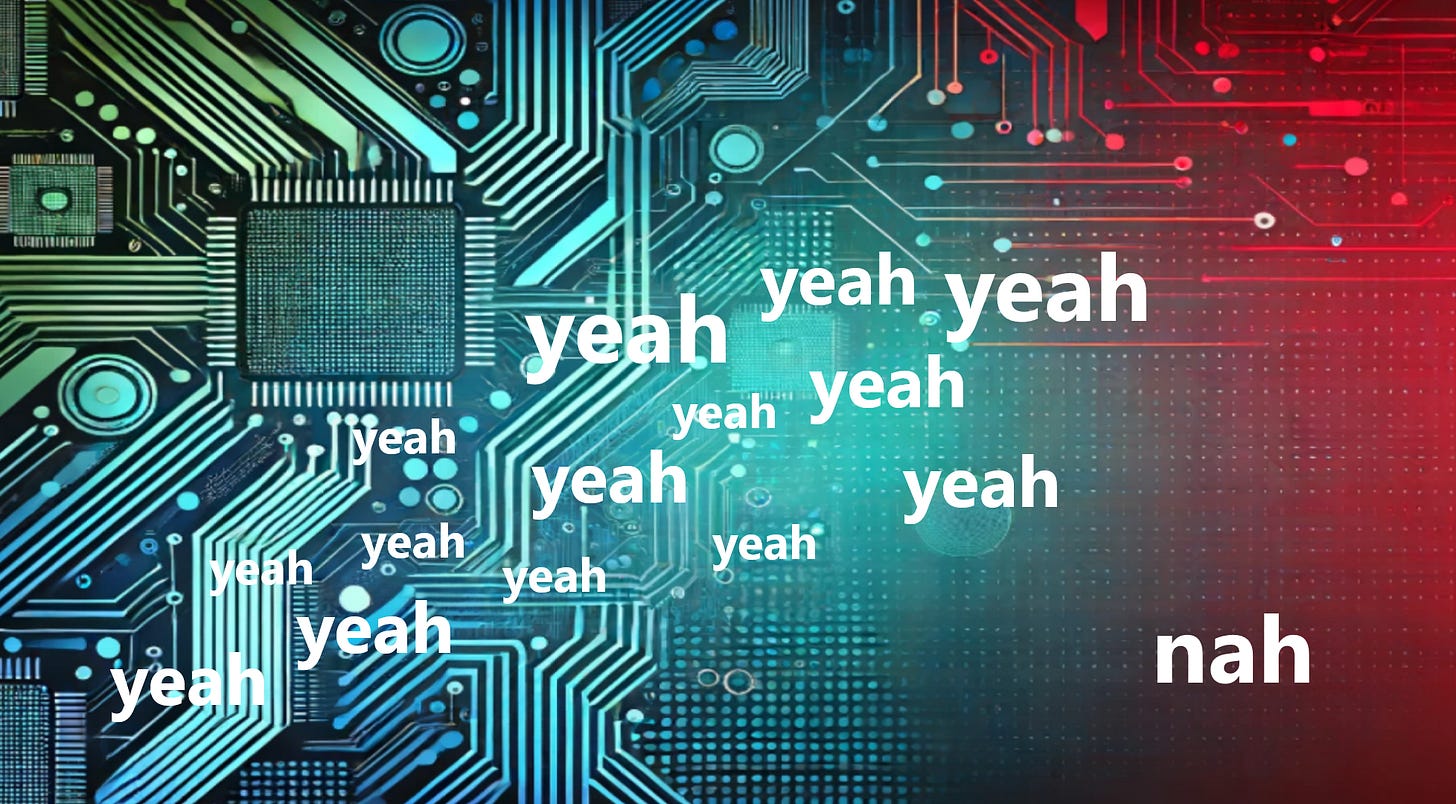15. Yeah, yeah, yeah, yeah, yeah, nah
Is the history of decentralization patterned after the stock market?
True Story.
A good friend of mine, Denis, put me onto a UK stock that was going to fund his retirement. So, in I went, boots and all. It was a bit up and down, but we believed. We believed. It started to slide. Concerned, I left Denis a message saying “what’s up” and Denis, confidently, left me a message saying “I have total confidence in …”. Phew. A week later I rang again, and Denis began with “I sold the lot…”.
Will decentralized identity go the same way?
In his recent post, 'Decentralized Identity Comes of Age’ , Phil Windley wrote that he feels that decentralization has reached its tipping point. Phil was at the European Identity Conference and observed that ‘decentralized identity' is moving out of the ‘geek' space into ‘mainstream' space.
That is intriguing!
I do agree with Phil’s assertion that decentralization will be a wonderful solution that transforms so many of today’s problematic identity processes. Not only that, but that view is shared by many people, as Phil showed - decentralization is the nirvana for identity.
Which brings me to the practical. As decentralization reaches its fulfillment, it only seems reasonable to ask “will it work?”
My challenge to the decentralization community is for them (someone) to explain how it works in relatively simple and reasonable terms. I say relative because identity is not simple, so we should not expect simple solutions. But … we should expect to see a design that can be understood by the informed, which probably means you and me. We should not be expected to look at a whole bunch of code and then determine how it works. Also, we need to see a design that is more than a list of desirable outcomes. We need to see a tangible design.
The Internet Identity Workshop is in its 20th year and has produced so much and shaped so much more. Could I ask for them in the name of ’Steve' for just ‘one more thing’?
Is there someone who can distil all that amazing work into a decentralization design we can all understand?
Or is this like my UK stock journey – yeah, yeah, yeah, yeah, yeah, yeah, nah?
I promise you that the nah moment leaves one feeling a bit empty…
Regards
Alan
p.s. ‘Yeah, nah’ is a common expression in New Zealand Aotearoa. When used in conversation it often has lots of yeahs before the nah. In the end, It always means no.



